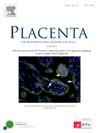Gene expression profiles based on maternal plasma cfDNA nucleosome footprints indicate fetal development and maternal immunity changes during pregnancy progress
IF 3
2区 医学
Q2 DEVELOPMENTAL BIOLOGY
引用次数: 0
Abstract
Background
Pregnancy significantly alters the maternal immune system, affecting fetal development. The collection of tissues from the human placenta and fetus is not ethically or practically feasible at various gestational stages, thus limiting the study of gene expression in the fetus and placenta. Recent studies have shown that plasma cell-free DNA (cfDNA) nucleosome patterns can predict gene expression in the source tissue, offering insights into an individual's health status. This study aimed to identify pregnancy-related gene expression changes across gestational periods using cfDNA nucleosome distribution to understand fetal development and maternal immune changes.
Methods
Plasma samples were collected from 150 healthy pregnant women in different trimesters (early, mid, and late) and 32 healthy nonpregnant women. The correlation between gene expression and physiological changes during pregnancy was evaluated by inferring differential expression profiles around the transcription start site (TSS) using cfDNA nucleosome distribution patterns obtained through whole-genome sequencing. We utilized Gene Ontology (GO) and Kyoto Encyclopedia of Genes and Genomes (KEGG) enrichment analyses to annotate differentially expressed genes with the mother and fetus.
Results
We identified gene expression changes that support the regulation of fetal development and immune system function during pregnancy. Differential coverage genes were mainly enriched in pathways related to transcription and translation, organic compound metabolism, and immune regulation. In addition, differentially expressed genes with significant temporal trends were identified. Among them, the upregulated differential genes were mainly related to development, whereas those with downregulated trends were mainly related to the immune system response. This indicates that differential changes of the placenta and maternal are significantly correlated with the pregnancy status.
Discussion
This study demonstrated the differential gene expression represented by the characteristic distribution of cfDNA nucleosome in maternal peripheral blood can effectively capture significant changes in maternal immunity and fetal development throughout pregnancy stages. It may help identify abnormal gene expression patterns associated with complications in pregnancy and childbirth, enhancing the quality of life and safety for both mother and fetus.
基于母体血浆cfDNA核小体足迹的基因表达谱表明胎儿发育和妊娠过程中母体免疫变化。
背景:妊娠显著改变母体免疫系统,影响胎儿发育。在不同的妊娠阶段,从人类胎盘和胎儿中收集组织在伦理上和实践上都是不可行的,从而限制了胎儿和胎盘中基因表达的研究。最近的研究表明,血浆无细胞DNA (cfDNA)核小体模式可以预测源组织中的基因表达,从而提供对个体健康状况的见解。本研究旨在通过cfDNA核小体分布来确定妊娠相关基因在妊娠期的表达变化,以了解胎儿发育和母体免疫变化。方法:采集150例不同妊娠期(早、中、晚)健康孕妇和32例健康非孕妇的血浆样本。通过全基因组测序获得的cfDNA核小体分布模式,推断转录起始位点(TSS)周围的差异表达谱,评估基因表达与妊娠期间生理变化之间的相关性。我们利用基因本体(GO)和京都基因与基因组百科全书(KEGG)富集分析来注释母亲和胎儿的差异表达基因。结果:我们发现了支持胎儿发育和免疫系统功能在怀孕期间调节的基因表达变化。差异覆盖基因主要富集于转录和翻译、有机化合物代谢和免疫调节等相关通路。此外,还发现了具有显著时间趋势的差异表达基因。其中,上调的差异基因主要与发育相关,下调趋势的差异基因主要与免疫系统反应相关。这表明胎盘和母体的差异变化与妊娠状态显著相关。讨论:本研究表明,以cfDNA核小体在母体外周血中的特征性分布为代表的差异基因表达可以有效捕捉整个妊娠期母体免疫和胎儿发育的显著变化。它可能有助于识别与妊娠和分娩并发症相关的异常基因表达模式,提高母亲和胎儿的生活质量和安全。
本文章由计算机程序翻译,如有差异,请以英文原文为准。
求助全文
约1分钟内获得全文
求助全文
来源期刊

Placenta
医学-发育生物学
CiteScore
6.30
自引率
10.50%
发文量
391
审稿时长
78 days
期刊介绍:
Placenta publishes high-quality original articles and invited topical reviews on all aspects of human and animal placentation, and the interactions between the mother, the placenta and fetal development. Topics covered include evolution, development, genetics and epigenetics, stem cells, metabolism, transport, immunology, pathology, pharmacology, cell and molecular biology, and developmental programming. The Editors welcome studies on implantation and the endometrium, comparative placentation, the uterine and umbilical circulations, the relationship between fetal and placental development, clinical aspects of altered placental development or function, the placental membranes, the influence of paternal factors on placental development or function, and the assessment of biomarkers of placental disorders.
 求助内容:
求助内容: 应助结果提醒方式:
应助结果提醒方式:


